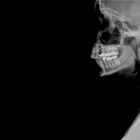Understanding Pituitary Tumor Surgery Recovery
Recovering from pituitary tumor surgery is a crucial phase of your journey towards better health.
This article will discuss the recovery process, covering topics such as healing, potential side effects, and advice for patients and caregivers.
What is the Pituitary Gland?
The pituitary is a small, pea-sized gland located at the base of your brain. It acts as your body’s “master gland” telling other glands in your body what to do.
Pituitary Tumor Surgery: A Brief Overview
Tumors in this location, although typically benign, require medical intervention because of the critical location. Pituitary tumors can cause hormone dysfunction, and in some patients, loss of peripheral vision. Early diagnosis and treatment of pituitary tumors is critical.
Surgery is the treatment of choice for most pituitary tumors that are causing symptoms, are large, or growing.
What type of surgery is used for pituitary tumors?
Transsphenoidal surgery is commonly performed for removing pituitary tumors. This is a minimally invasive procedure and uses the body’s natural corridors to remove the tumor without any external openings.
We are more than surgeons,
we are your support system.
How is pituitary tumor surgery performed?
Surgery is performed along with an ENT specialist to operate through the nose and sinuses. This minimizes tissue damage and allows a shorter recovery time compared to microscopic pituitary surgery and open cranial neurosurgery.
The procedure is performed utilizing a state-of-the-art endoscopic technique which uses a small high-definition camera. This allows for a panoramic view of the pituitary gland and tumor.
What to Expect Immediately After Surgery
The first few days after surgery are pivotal, requiring careful attention to symptoms and adherence to your surgeon’s guidance.
Common symptoms after surgery include:
- Headache
- Swelling and Bruising
- Congestion
- Hormonal changes
Your doctor will monitor these symptoms after surgery.
Typically, patients stay in the hospital for 2-3 days following endoscopic pituitary surgery. After surgery, you won’t have any bandages or dressings, or stitches that require removal. An immediate post-operative recommendation is sleeping with your head elevated. This can help minimize symptoms such as headaches, pain and nasal drainage.
While most patients experience minimal pain, on occasion narcotic pain medications may be prescribed on a temporary basis for 1-2 days after surgery.
Your doctor will order blood tests to monitor pituitary hormones. If necessary, you may start hormone replacement as needed on a temporary basis.
After surgery, you should not blow your nose vigorously and should avoid drinking from a straw. This helps to ensure the internal repair heals properly.
The Weeks Following Surgery: Important Considerations
As you move beyond the initial days and into the weeks after surgery, you’ll notice gradual improvements. However, each person heals at their own pace, and full recovery can take 4-6 weeks.
Here are several key factors to consider during this time:
Monitoring Hormone Levels:
The pituitary gland’s central role in hormone production means that monitoring your hormone levels post-surgery is crucial. Your doctor will likely order routine blood tests to ensure that your pituitary gland is functioning properly.
Physical Activity Restrictions
Your doctor may tell you to avoid lifting heavy objects or performing strenuous activities for several weeks after surgery. Such actions could strain your body and potentially hinder the healing process.
Managing Bowel Movements
Patients might experience irregularities with their bowel movements post-surgery. If constipation occurs, consult with your healthcare provider for the best course of action, as it is important to avoid straining.
Watching for Nasal Drainage
If you notice a clear, watery drainage from your nose, it’s essential to contact your surgeon immediately. This could be an indication of a cerebrospinal fluid leak and requires prompt medical attention. Many times, it may be normal nasal fluid, and your surgeons will be able to determine if there is concern for a leak.
Abstinence from Alcohol
Drinking alcohol post-surgery may interfere with your medication, exacerbate dehydration, and impair your body’s healing process.
Long Term Recovery
In the 4-6 weeks after surgery, significant improvements are often noticeable. By this time, you should be able to resume most regular activities. However, the journey isn’t over, and some longer-term considerations remain.
Ongoing Hormonal Assessments:
Depending on how your pituitary gland responds post-surgery, you might require ongoing hormone replacement therapy. Regular follow-ups are necessary to adjust any medications and ensure your hormone levels are balanced.
Continued Monitoring:
Doctors may recommend regular MRI scans or tests to check the pituitary gland and make sure there is no tumor growth. We also arrange for follow-up with your ophthalmologist to monitor your vision.
Lifestyle Adjustments:
Adopting a healthy lifestyle is paramount. This involves a balanced diet, regular exercise (as advised by the doctor), and strategies to cope with stress, contributing positively to your overall well-being.
A Journey Toward Renewed Health
Recovering from pituitary tumor surgery is a gradual journey that varies for each patient.
From the initial days of managing recovery to the weeks dedicated to monitoring hormone levels and physical health, patients must be vigilant and proactive.
By understanding and cooperating with the healing process, patients can navigate the recovery period with resilience and optimism for a healthy tomorrow.
It is important to maintain an open line of communication with your healthcare team, adhere to prescribed medications, and adopt lifestyle practices that bolster recovery.
Remember, you are not alone on your path to recovery-support groups and healthcare professionals are valuable allies in this journey toward renewed health.

About Dr. Rupa Juthani
Dr. Juthani has expertise in a wide range of oncologic conditions including pituitary adenomas, skull base tumors, brain metastases, and gliomas. Dr. Juthani has unique training in minimally invasive approaches including endoscopic pituitary and skull base surgery, laser surgery, Gamma Knife radiosurgery, and fluorescence guided surgery.
Recent Posts:







